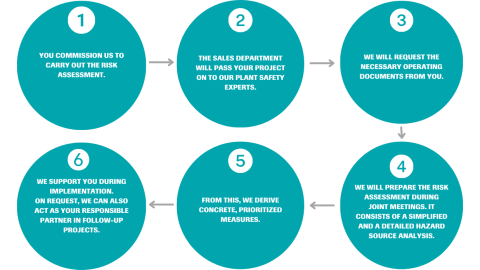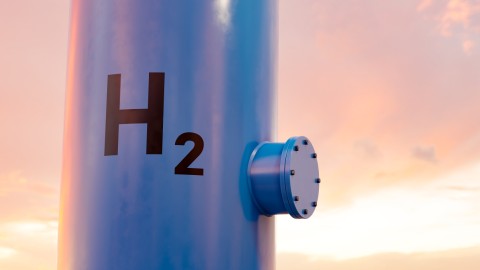Maximum plant safety through risk assessment in accordance with TRAS 310 and TRAS 320
Heavy rain, wind, snow, and ice: How to secure your facilities sustainably
Extreme weather events are on the rise. Climate change is also affecting the Rhine-Main region, leading to a higher risk of heavy rain, flooding, and strong winds. Operators of BImSchG facilities (facilities subject to the Federal Immission Control Act) are obliged to systematically analyze and secure these sources of danger. This obligation applies in particular to facilities subject to accident regulations.
Since February 2012, Technical Rule for Plant Safety 310 (TRAS 310) has stipulated the precautions and measures that plant operators must implement to protect against the dangers posed by precipitation and flooding. In addition, Technical Rule for Plant Safety 320 (TRAS 320) describes the risk assessment for other environmental influences such as wind, wind-driven projectiles, ice and snow loads.
Infraserv Höchst provides on-site support to help you meet all requirements. From analysis to planning protective measures, we ensure that your plant safety is guaranteed in the long term.
TRAS 310 and TRAS 320 – What plant operators need to know
Who is affected?
Operators of plants requiring approval under the Federal Immission Control Act (BImSchG) and accident-prone plants, in particular plant managers who are responsible for compliance with legal requirements.
What does the regulation require?
A detailed analysis of the sources of danger to identify and assess the risk, with the derivation of effective measures.
What are the risks?
Production downtime, damage to plants and buildings, danger to employees and the environment, and high follow-up costs.
Why act now?
The authorities require documented proof of your action plan. Delays or inadequate analyses can lead to fines, liability claims, or plant shutdowns.








